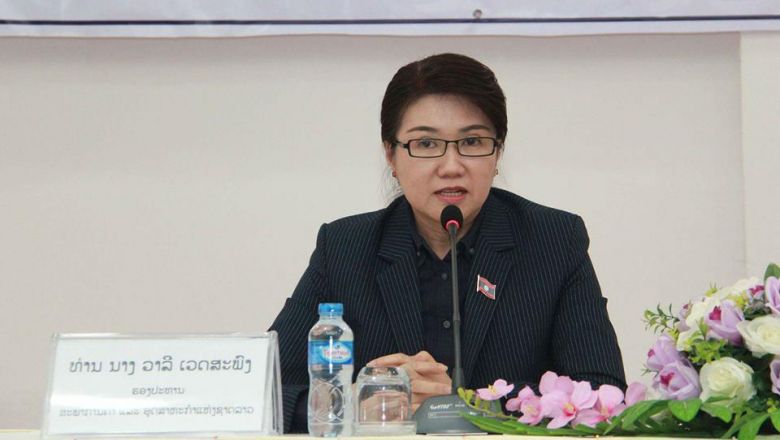Lao Central Bank Advised To Strictly Regulate Money Changers
Source: phnompenhpost
The Bank of the Lao PDR (BoL) should not merely issue warnings to money changers who break the currency regulation rules, a senior Lao National Chamber of Commerce and Industry (LNCCI) official said last week.
The remarks were made during a consultative meeting between public and private sector representatives in Vientiane to discuss foreign exchange rates and other topics related to public services to ease business operations.
LNCCI vice-president Valy Vetsaphong, who co-chaired the meeting with a vice governor of BoL, told Vientiane Times the business sector had observed that there were many foreign currency exchange services that do not comply with the rules. These circumstances had exacerbated the fluctuation of exchange rates.

“Exchange units operated by banks are tightly controlled, but there is no effective measure to regulate money changers that are outside the system,” she said.
BoL has promised to ramp up the management of exchange outlets and to caution those who do not obey the regulations.
But Valy (pictured, Vientiane Times), who also spoke as a member of the National Assembly, suggested the BoL didn’t need to warn these outlets.
“People who make mistakes must be punished according to the law. If we can do so, law enforcement will be more effective. It takes a lot of time before a law is approved, so we have to enforce it effectively,” she said.
Transactions through the banking system are one way of ensuring that banks can regulate currencies and exchange rates.
She said there is a greater possibility of fluctuations in the forex rate if large amounts of money change hands outside the system.
Lao consumers are facing economic pressure such as high living costs as a result of the declining value of the kip against the US dollar and Thai baht. The strengthening of these two currencies is a significant factor in pushing up inflation and consumer expenses.
According to rates set by the Banque pour le Commerce Exterieur Lao Public (BCEL), Laos’ leading commercial bank, at the start of this year, the bank was buying $1 for 8,545 kip and selling one dollar for 8,550 kip.
On July 1, the exchange rate indicated the dollar was stronger, with buying and selling rates of 8,641 kip and 8,658 kip, respectively. This month, the dollar has continued to maintain its strength. On Friday, $1 was bought for 8,687 kip and sold for 8,705 kip.
The Thai baht has also strengthened – a position it has maintained since January. In the first week of January, one baht bought 263.09 kip and sold for 265.06 kip.
But on July 1, the buy and sell rates were 286.59 kip and 288.75 kip respectively. This week, the baht was a little weaker compared to the beginning of last month, but it was still very high. On Friday, one baht was bought for 286.84 kip and sold for 289.00 kip.
The value of the kip against the US dollar fell by 0.9 per cent and by 3.5 per cent to the baht over four months from January, according to a report from Minister of Planning and Investment Souphan Keomixay, which was submitted to the government’s recent meeting with provincial governors.
Valy said according to theory if there was widespread use of foreign currencies, the value of the kip would be weaker.
Prices quoted in Thai baht and US dollars are still commonplace, particularly in Vientiane, including in hardware stores, despite BoL’s attempts to crack down on the practice.


